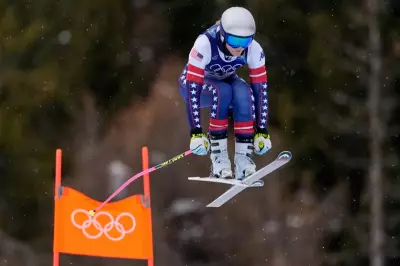
Tennis superstar Carlos Alcaraz is pushing his body to the absolute limit, adopting a radical training technique that involves deliberately cutting off his blood supply. The Spanish sensation was spotted using the controversial method during warm-ups at the ATP Finals in Turin, demonstrating his relentless pursuit of excellence.
The Science Behind the Straps
Initially mistaken for an injury support, the black straps tightly fastened around Alcaraz's legs are actually a calculated part of his regimen. These are occlusion bands, also known as blood flow restriction (BFR) bands. They work by limiting circulation to the limbs, creating a low-oxygen environment that forces muscles to work significantly harder even with lighter weights.
Pedro L. Valenzuela, a researcher at Madrid's 12 de Octubre Hospital, explained the method's origins. "Badminton player Carolina Marin used them during recovery from a serious knee injury," he said. "From there, they spread to athletes in general, because blood restriction helps build muscle even with low loads."
From Rehabilitation to Elite Performance
Alcaraz first began experimenting with BFR bands in 2023, starting on his right arm before progressing to both arms and, most recently, incorporating them into his leg workouts. The technology, first developed for physical therapy, has now been embraced by elite athletes seeking every possible advantage.
For his pre-match routine, however, Alcaraz employs a more intense variation called ischemic preconditioning. This involves tightening the bands so firmly that blood flow is completely halted for short periods of up to five minutes. When released, a surge of oxygen-rich blood floods back into the muscles, enhancing flexibility and potentially dulling pain sensations to boost match performance.
Weighing the Risks and Rewards
This extreme practice is not without its drawbacks and is unsuitable for athletes with circulatory issues due to the risk of thrombosis. The sensation is also intensely uncomfortable for many.
"Some people don't like them because they cause an unpleasant sensation," Valenzuela added. "It's what we call the nocebo effect. It's like having your blood pressure taken for five minutes: your feet start to go numb, you feel a tingling sensation... Some people don't want to use them."
Despite the temporary discomfort, for competitors like the 22-year-old Alcaraz, the potential performance benefits are too significant to ignore. His strong start at the ATP Finals, with victories over Alex de Minaur (7-6, 6-2) and Taylor Fritz (6-7, 7-5, 6-3), suggests the method is paying dividends. A win against Lorenzo Musetti would secure him the top spot in the Jimmy Connors Group, advancing him to the semi-finals.





